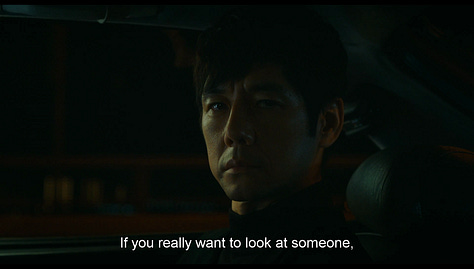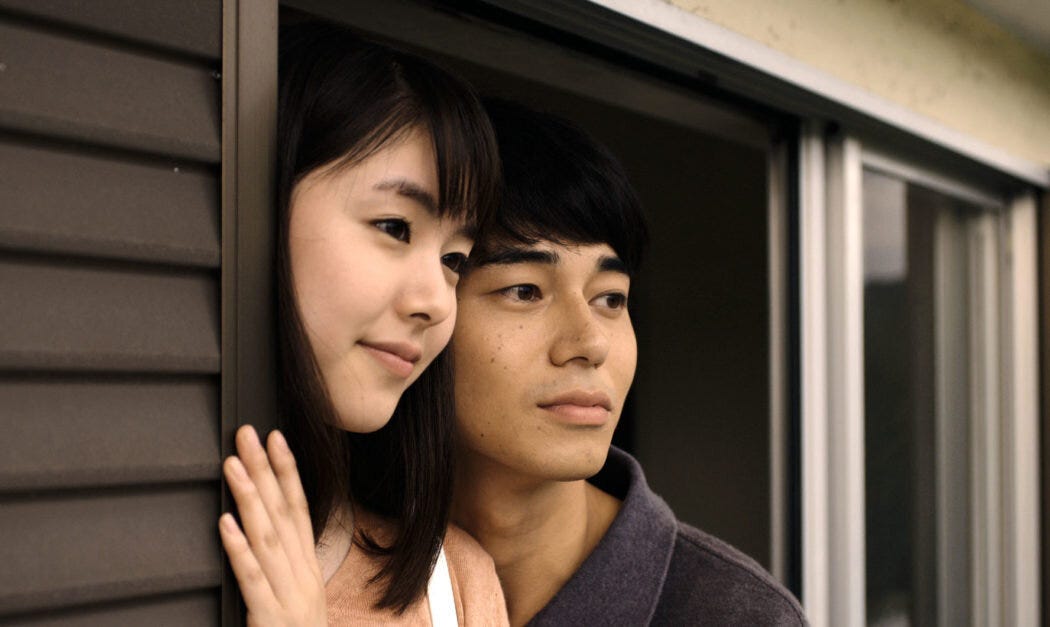We have all been in love, out of it, and bystanders to its blinking light.
It goes further than physical attraction and emotional intimacy. The relationships we carry with our surroundings, work, and family… dent our reaction to love into a unique sculpture. I have been in love. You have been in love. We have both cried ourselves to it. Attempts made by movies and books often reduce their value to a superficial reflection–a sunray’s glint on a window. A man defending his family against danger. A woman discovering spontaneous congeniality in someone.



The reality of it is entirely different. There are layers, and layers and more layers to peel. Ryusuke Hamaguchi is a chronic peeler. Something that appears to be thematic to his work is the frankness of his characters. They do not lie. They make mistakes and have faults of character but they are always true to their acts. Not proudly nor ashamedly, but almost as if they have long thought about it and this is their ultimate confession to the world. To platform these exchanges between characters Ryusuke transitions between dynamic (such as in a moving vehicle) and static (or in a cafe) scenes separated by gaps of silent reflection.
In Asako I & II (寝ても覚めても), the main protagonist falls in love with an aloof character named Baku who true to his nature one day disappears without notice. Two years go by and she meets someone identical, a doppelgänger on the outside but completely different on the inside; she falls in love once again. Something that many of us have been confronted with is whether we love that person because of what they are, or is it because they carry traits of the past? Is love still valid for the latter? The main character, Asako struggles with these questions. When she finally accepts her answer, Baku returns as if no time had gone by. A tide of emotions rises with his arrival. Can someone love two people and what happens to your mental health when you are betrayed by your partner with a possibly superior version of yourself–do you give up or keep going? (Unfortunately going beyond fiction, the male actor was caught having an affair with the female actress, inducing his subsequent divorce1.)
In his most recent film, Drive My Car (ドライブ・マイ・カー), Ryusuke places his male protagonist between a rock and a hard place. He must come to terms with his wife’s various affairs which he has known for some time but is afraid to bring up. On the day he decides to confront her about it, he finds her collapsed at home–dead. The fear of losing her has materialised without the much-needed closure. His career brings him to develop a sundry relationship with one of the men his wife slept with. A journey made in reverse where he confronts past trauma and seeks understanding for his deceased partner. In parallel, a driver runs away from the past and her role in her mother’s death; another relationship cut short of its final momentum. Both narratives are explored as the male character builds a play for Uncle Vanya and the female character drives him back and forth. The binary aspect of morality is consistently put through a prism for the audience to peek at.
“My characters are fictional, but after all, I might want that kind of relationship with people. I think I want to communicate with people who tell the truth.”
– Ryusuke Hamaguchi
His most interesting questioning takes place during the five-hour-long film (the longest Japanese film ever made), Happy Hour (歡樂時光). It follows the story of four women that are connected through friendship and their unique love dynamics:
Jun whose husband refuses to divorce her brings her to consider extreme alternatives
The tough Akari struggles to build romantic relationships and seemingly despises the vulnerable
Sakurako puts up with her husband’s old-fashioned marriage until her son makes someone pregnant and must deal with the humiliation alone
Fumi battles insecurities over her marriage and what to do about those fears
These fragmented tales of love allow us to reflect on the uniqueness of our relationships. We are capable of many things for this four-lettered word and the pain but also the joy it brings us is immeasurable. It is with great conviction that I recommend Ryusuke Hamaguchi to anyone pondering the same questions.
https://www.tokyoreporter.com/entertainment/actor-masahiro-higashide-apologizes-over-affair-with-actress-erika-karata/




